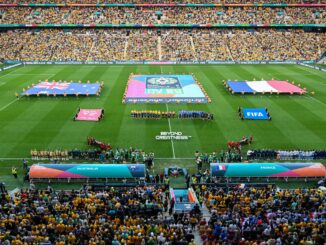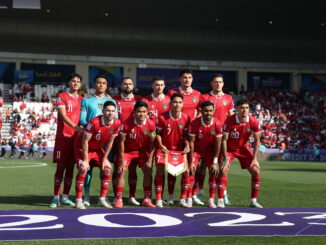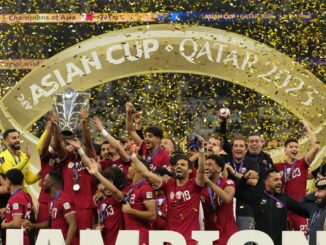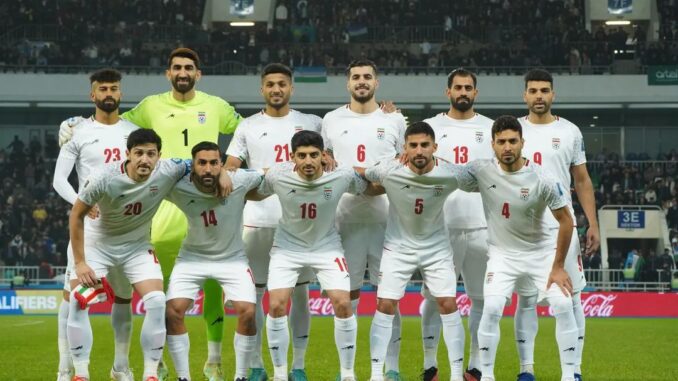
When Iran won the AFC Asian Cup for the third consecutive time, in 1976, Brazilian Mario Zagallo was a young 45-year-old coach who guided Kuwait to the final.
Zagallo died in early January at the age of 92, but in that time Iran has still not managed to add a fourth title to their collection.
However, many believe that Amir Ghalenoei’s team has a good chance to end the curse. This is likely the last Asian Cup for many of Iran’s squad, and therefore the last chance for this talented generation to win a continental trophy and cement their status in Iran’s football history.
Fifteen of Iran’s 26 players played at the last Asian Cup in the UAE, which ended with a bitter 3-0 defeat against Japan.
The controversy around Japan’s first goal still resonates in Iranian football. After a clash between Mohammad Hossein Kanaani and Takumi Minamino on the edge of the Iran box, the Japanese slumped to the turf.
As the Iranian defenders were objecting to the referee for alleged simulation, Minamino followed the ball, crossed it to Yuya Osaka for the then-Werder Bremen striker to score the opener with an exquisite header.
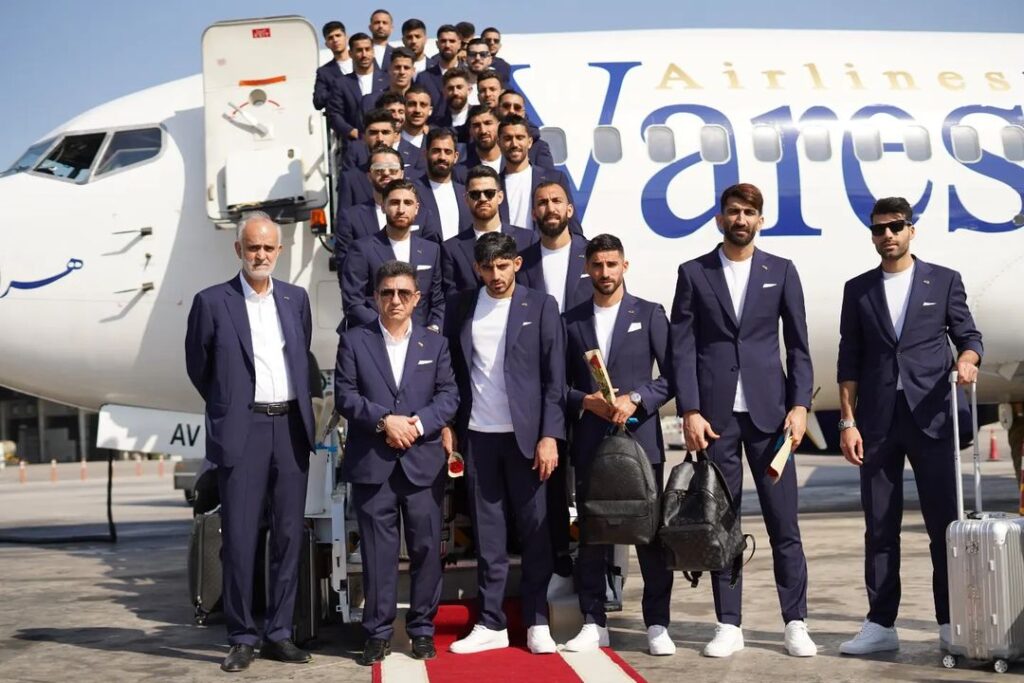
Iran conceded two more goals, but many condemned the players’ unprofessionalism and lack of concentration that led to the first goal. For them, it was the unnecessary aggressiveness that Portuguese manager Carlos Queiroz instilled in his side through his ‘us against the world’ philosophy that made lots of enemies for him and brought chaos to the team in one of the most important matches during his first stint as Iran’s coach.
It wasn’t the only aspect of Queiroz’s team that some Iranian fans would like to see changed. The former Manchester United manager preferred a defensive, counter-attack approach that had many detractors within Iranian football; the same approach that concluded his fate with the Qatar national team just after 10 months.
Amir Ghalenoei built a different team, a more attacking one that obviously doesn’t have the defensive solidity of Queiroz’s side.
However, the backbone of the team still consists of players who played at the two most recent World Cups for Team Melli and are known as Queiroz’s boys.
Alireza Beyranvand (32), Ramin Rezaeian (34), Roozbeh Cheshmi (31), Saman Ghoddos (31), Alireza Jahanbakhsh (31), Sardar Azmoun (29), and Mehdi Taremi (32) all started their international careers under the Portuguese manager. Alongside Omid Ebrahimi (36), Ehsan Hajsafi (34), Karim Ansarifar (34), and Shoja Khalilzadeh (35), they are in the twilight of their careers, so this tournament is their last opportunity to win the trophy that Iran has not won since the Islamic revolution in 1979.
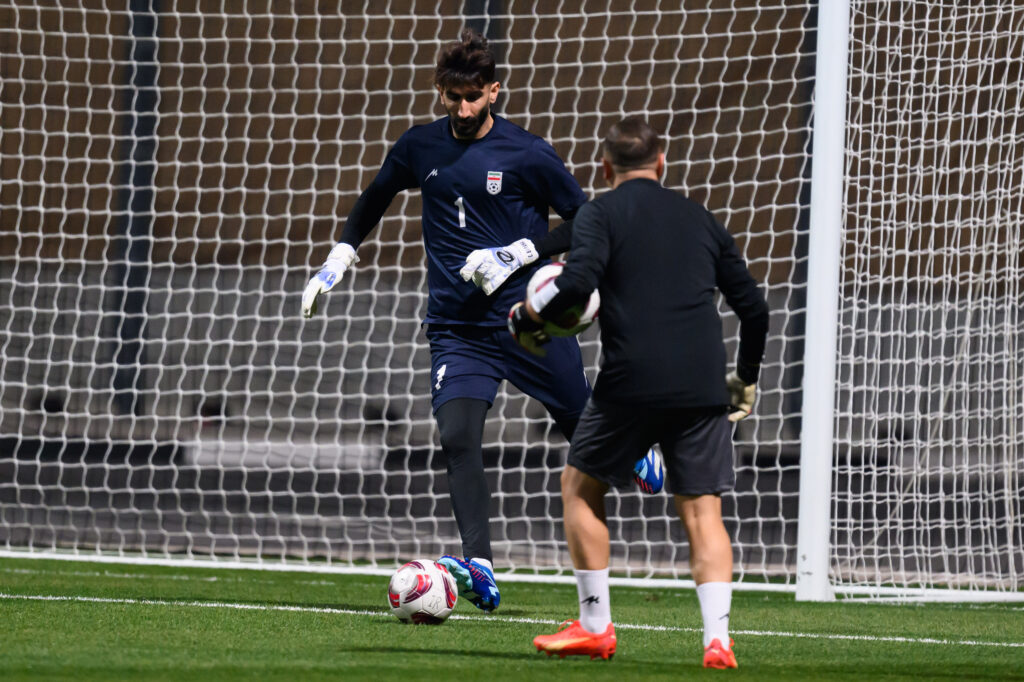
After brilliant performances at the 2018 World Cup in Russia and saving Cristiano Ronaldo’s penalty, Alireza Beiranvand is still Iran’s undisputed number one. Ghalenoei hopes he will be at his best when the campaign starts for Iran, as he stated in a press conference before the opening match against Palestine: “A good goalkeeper is better than a good parent!”
Ramin Rezaeian, who scored Iran’s second goal against Wales in Qatar World Cup, is in career-best form with Isfahan club Sepahan, and will be one of the key cogs in attack as a penetrative right full-back.
But the most important players, who have the most attacking responsibilities on their shoulders, are Mehdi Taremi and Sardar Azmoun.
Azmoun, who missed the 2014 World Cup as a youngster, just eight months later was an Iranian phenomenon in the 2015 Asian Cup in Australia and scored four goals in four matches. However, Iran was eliminated in the quarter-final in a penalty shootout after a dramatic 3-3 draw against Iraq.
Four years later, the attacking duo helped Iran reach the semi-final, but as Taremi missed the match through injury, Azmoun put in one of his worst performances for Team Melli amid ugly clashes with Japanese players.
In the following four years, Taremi and Azmoun’s club careers have progressed significantly. Taremi became a real star in the Portuguese league with Porto, and Azmoun left Zenit Saint Petersburg for Bayer Leverkusen and currently plays under Jose Mourinho at AS Roma.
Embed from Getty ImagesHaving scored 91 goals for the national team between them, Taremi and Azmoun surely will not have a better chance to lift the Asian Cup trophy.
After this competition, whether or not Ghalenoei remains in charge, Iran will need to undergo significant changes to the roster, and many current squad members will likely be replaced by younger players.
Even if they continue to play in World Cup qualification, the two-and-a-half years leading up to the next tournament is a considerable amount of time for players over 30, and there is no guarantee that they will maintain their current form.
Having experienced international football through two (or three) World Cups and Asian Cups, this generation of Iranian footballers has had more exposure than any of their predecessors.
If they are unable to end this trophy drought, perhaps Iran should send someone to Brazil to apologise to the Zagallo family for the song mocking the legendary manager after Kuwait’s defeat in the 1976 final.
May he rest in peace and may his passing bring luck to Iran as they aim to finally win their fourth title in Asia.
Photo: IG/teammellifootball
Listen to The Asian Game Podcast as we preview Group C at the AFC Asian Cup 2023


